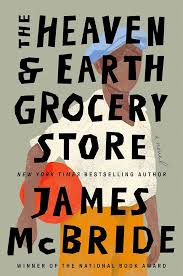Chapter 17: The Bullfrog
byChapter 17: The Bullfrog begins during a chaotic time for Ahavat Achim synagogue on Chicken Hill. The community is facing not only emotional strain from Chona’s critical illness but also unexpected complications with their mikvah. When a massive bullfrog is discovered splashing in the sacred bath, it startles the congregants and sparks fresh controversy—especially for Mr. Hudson, a vocal new member from Buffalo who insists on a more lavish, professionally built mikvah, even offering a generous donation to fund it. However, this offer comes with complications, as it forces the chevry to confront long-standing issues they had quietly avoided: namely, that the water source for their ritual bath had been coming from an unauthorized well tied to a local dairy once owned by the Plitzka family. That well, deeply entangled in the community’s past and present politics, becomes the center of tension during a heated temple meeting, exposing fractures between traditionalists and newcomers.
At the meeting, members like Irv Skrupskelis and Rabbi Feldman attempt to mediate, but tempers rise quickly. Hudson’s frustration at the congregation’s resistance is not just about the mikvah but a larger frustration about change, inclusion, and ownership. Feldman hesitates, trying to uphold unity while also protecting the legacy of Chona’s father who helped build the temple by hand alongside the late Shad, a Black craftsman. Their shared effort was once a symbol of harmony between Jewish and Black residents of Chicken Hill, but now even that is strained. The fact that the well’s legal ownership is vague and tied to the now-powerful Plitzka family—whose influence is resented by many—adds layers of difficulty. Despite Hudson’s wealth and enthusiasm, some view him as an outsider who misunderstands the delicate balance the community has always maintained.
Emotion seeps into the conversation when Chona’s declining health is mentioned. Her activism and past efforts to unify the town come to mind, making the bullfrog feel symbolic—an unwelcome sign disrupting a space meant for spiritual renewal. Though meant to purify, the mikvah now stirs debate, not serenity. The amphibian’s presence hints at deeper contamination—not just of water, but of memory, duty, and trust. For some, the debate is not merely about plumbing but about protecting a way of life built on fragile cooperation. For others, it is a call to modernize, to build a mikvah that reflects the future instead of patching together relics of the past. The irony is not lost on anyone: a creature as lowly as a frog could expose such profound divisions within a community held together, until now, by shared hardship.
In a broader context, the chapter touches on the historical struggle of small congregations to maintain sacred spaces without stable funding. In early 20th-century America, many immigrant Jewish communities faced the challenge of balancing religious observance with economic survival, and mikvahs—essential for ritual purity—were often improvised or underfunded. The use of non-traditional water sources, including borrowed wells, was not uncommon, especially in areas where zoning laws and municipal services neglected minority neighborhoods. The bullfrog incident reflects how quickly these fragile compromises can unravel when expectations clash. Moreover, water in religious contexts often represents not only cleanliness but divine connection. A breach in the purity of that water, then, becomes a metaphor for fractures in the faith community itself.
When the meeting adjourns, no decision is made. Instead, unresolved emotions hang in the air. Hudson leaves frustrated, while the older members—haunted by memories of Chona’s steadfast efforts to create something enduring—remain quiet. Their silence is not surrender but grief, both for Chona and the changing nature of their world. Outside the building, children play near the hilltop, unaware that their elders are fighting to preserve the ground beneath them. The frog, long since removed, has done its job—it stirred up more than water. It stirred souls.


